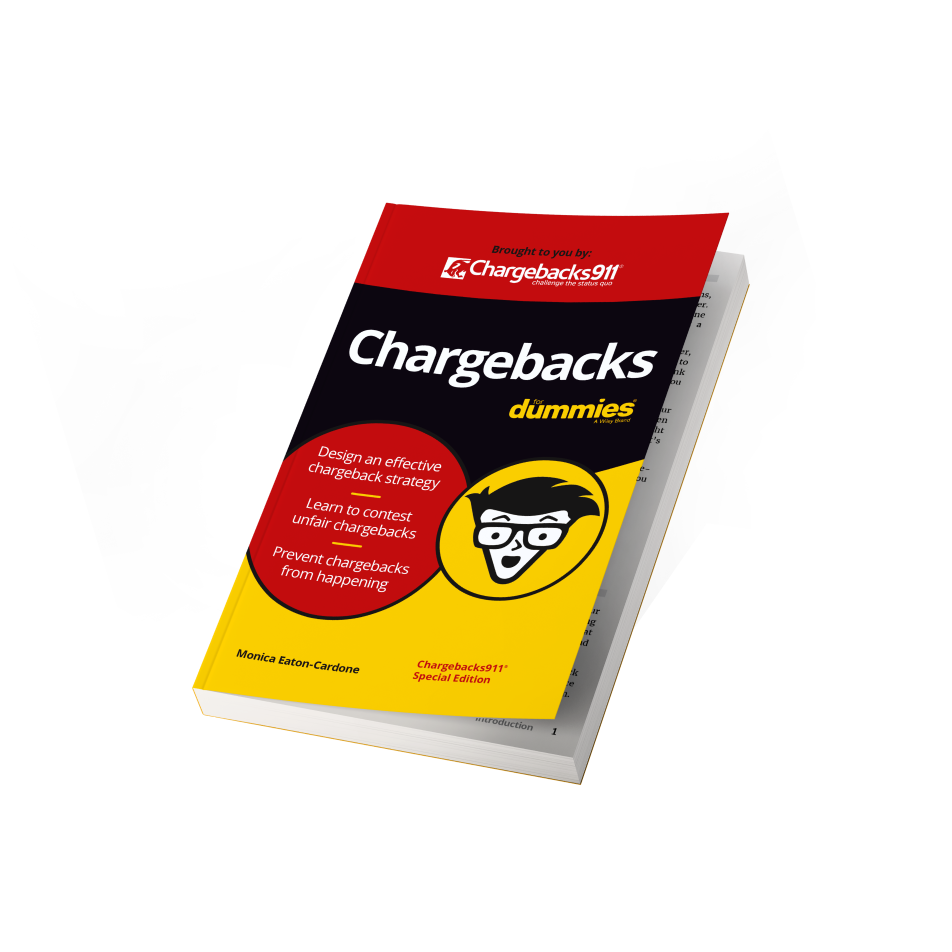How Accidental Fraud Can Come Back to Bite You Later
Can fraud happen by accident? You might be surprised to learn that, not only is the answer “yes,” but it’s actually very common.
Several factors can lead to cardholders engaging in accidental fraud. Lack of attentiveness, ignorance of rules, or even mistakenly using the wrong credit card are all common triggers. Essentially, you can commit fraud without even realizing you’ve done it.
But what is accidental fraud exactly? How can cardholders avoid making a mistake that will cost them later on? Today, we're going to focus on accidental credit card fraud, how merchants need to know about it, and what cardholders can do to keep their reputation safe.
Recommended reading
- Fake Google Reviews: How to Identify, Remove & Prevent
- The Top 10 Prepaid Card Scams to Watch Out For in 2025
- How do Banks Conduct Credit Card Fraud Investigations?
- Credit Card Cloning: How it Works & How You Can Prevent It
- How Overpayment Scams Work: Signals, Examples & Prevention
- What is Third-Party Fraud? Tactics, Red Flags & Prevention
What is “Accidental Fraud?”
Let’s start by clarifying what we’re talking about when we say that a fraud incident is “accidental” in nature.
Accidental fraud is not a formal legal classification, like wire fraud or tax fraud. Rather, the term can be applied in a variety of situations in which a consumer engages in behavior that constitutes fraud without their knowledge.
The term is mainly applied in regard to payments and finance, and describes any behaviors that ultimately result in unauthorized or unintended financial transactions. These are actions that were not intended to defraud, but which nonetheless still fall afoul of legal or policy regulations regarding financial transactions.
The term “accidental” implies a lack of malicious intent. That said, credit card fraud is defined by the action of using a card without proper authorization, not the intent behind the card’s use. Even if the fraud seems accidental, it can still result in significant consequences, including legal action.
How Does “Accidental Credit Card Fraud” Happen?
The line between an honest mistake and credit card fraud can sometimes become blurred. A cardholder might find themselves inadvertently crossing this line, not due to malice, but because of simple oversights or misunderstandings.
With that in mind, here are a few scenarios that can lead to accidental credit card fraud:
In many cases, accidental fraud ends up manifesting as misuse of the chargeback process. When this happens, it is commonly referred to as first-party (or “friendly”) fraud. Click here to learn more about this phenomenon.
Those are just a few of the most common examples. There are many other scenarios that might qualify as accidental fraud, though.
And, whether intentional or not, engaging in fraudulent activity can have serious legal and financial consequences. Consumers need to be aware that these penalties exist.

Penalties for Accidental Credit Card Fraud
The penalties for credit card fraud, including accidental fraud, can vary widely depending on the jurisdiction, the amount of money involved, and the case's specific circumstances. However, it's important to understand that, in the eyes of the law, “accident” is not a viable defense against fraud.
Consumers found to have committed credit card fraud, even if was unintentional, could face a range of penalties, such as:
- Restitution: The cardholder might be required to pay back the money that was defrauded. This is often the first step in resolving minor issues.
- Damage to Credit Score: Engaging in fraud can impact a person's credit score, whether through the misuse of credit or due to legal actions taken against the individual.
- Fines: Courts can impose hefty fines as a penalty for fraud. These can vary greatly depending on the severity and amount of money involved.
- Incarceration: In extreme cases, particularly where large sums of money are involved or there is a pattern of fraudulent behavior, an individual could be sentenced to jail time.
- Probation: A perpetrator might be placed on probation, with various conditions attached to their behavior and monitoring by the justice system.
- Community Service: The court might order community service for lesser offenses, or in cases in which mitigating circumstances are present.
- Civil Lawsuits: Aside from criminal penalties, if a bank or other party suffers a loss due to fraud, they may file a civil lawsuit to recover damages.
If the situation was genuinely accidental, and there is evidence to support this, it could be considered a mitigating factor. That might reduce the severity of the penalties. But, it probably won’t be enough to avoid all consequences.
If you’ve been accused of credit card fraud, intentional or accidental, we recommend seeking legal advice immediately. This will help you understand your rights and the potential implications of the accusation.
How Accidental Fraud Impacts Merchants
Accidental fraud can undermine a merchant's financial wellbeing and operational efficiency.
For instance, let’s say a customer authorized a charge, but does not recognize the charge on their statement, and decides to dispute it. As mentioned above, this would be a case of friendly fraud. For the merchant, this means:
Chargeback Fees
Each dispute means the merchant incurs a chargeback fee. These fees can pile up quickly, hitting small businesses particularly hard.Lost Merchandise
Not only does the merchant lose the money from the sale, but often they also lose the product that was sold, doubling the financial hurt.Increased Costs
Businesses that experience a lot of chargebacks are often seen as risky by credit card processors, which could lead to higher fees for processing.Operational Headaches:
Dealing with chargebacks takes time and attention away from running the business and looking after customers.Restrictions
Excess chargebacks could mean losing one’s ability to take credit card payments altogether, which is a huge deal in today’s online shopping world.A surge in consumer fraud could make businesses tighten their return and refund policies. While they're meant to protect the business, these policies could unintentionally push away the honest customers who worry they won't be treated fairly if something goes wrong.
Navigating the complex issue of fraud — whether accidental or not — is a challenge for everyone involved. It takes a careful balance to protect against fraud while maintaining a fair and open relationship with customers.
Avoiding Accidental Fraud: Tips for Consumers
As a consumer, one’s relationship with a credit card issuer should be based on a foundation of responsible use and vigilance. Here are some actionable strategies to keep credit card use transparent and trouble-free:
#1 | Know Your Plastic
With similar designs and colors, it's easy to mistake one card for another. Take a moment to familiarize yourself with your cards. A small sticker or marking can help differentiate them if you carry multiple from the same issuer.
#2 | Regularly Review Statements
Make it a habit to check your credit card statements monthly. This not only helps in recognizing unfamiliar charges but also in spotting any potential errors that could lead to accidental fraud claims.
#3 | Keep Track of Subscriptions & Trials
Keep track of any services that use your card for recurring payments. Make a note of trial periods and their end dates, so you can decide whether to continue or cancel the service before incurring charges.
#4 | Provide Accurate Information
Only provide truthful details when applying for a credit card. Overstating income or underreporting existing debt can lead to overspending and financial strain, making it harder to keep up with payments.
#5 | Reach Out to Merchants First
If you spot a charge you don't recognize, contact the merchant directly before initiating a chargeback. Often, the issue can be resolved quickly, saving you from the hassle of the dispute process (and sparing the merchant from a chargeback fee).
#6 | Educate Authorized Users
Let’s say you've allowed a family member to be added as an authorized user for your credit card. Ensure they understand the spending limits and usage rules to prevent misunderstandings or unintentional overspending.
#7 | Notifications & Alerts
Many credit card issuers offer real-time alerts for every transaction. Enabling these can provide immediate information about card usage, allowing you to catch and report any fraudulent activity quickly.
#8 | Update Your Information
If your card is lost, stolen, or expired, be sure to update your payment information for any merchants with whom you have ongoing subscriptions or memberships. This helps prevent charges on an outdated card which can lead to confusion or service interruptions.
Integrating these habits into your financial routine will protect you from accidental fraud and strengthen your overall credit card security and financial health. Responsible card ownership is a continuous process that demands attention and care. With the right practices, you can enjoy the benefits of credit without falling into the traps of accidental fraud.
FAQs
What is an example of accidental fraud?
Accidental fraud can happen when a person uses a family member's credit card, mistaking it for their own, and makes unauthorized purchases without realizing it. This can also happen if someone forgets to cancel a subscription trial, resulting in unexpected charges that the user did not intend to authorize.
What is unintentional fraud called?
Unintentional fraud is commonly referred to as "first-party fraud” or “friendly fraud.”
What to do if I accidentally commit fraud?
If you accidentally commit fraud, promptly contact your bank or the credit card issuer to explain the mistake and rectify the situation, and if necessary, also inform the affected merchant to resolve any charges or disputes.
What is accidental friendly fraud?
Accidental friendly fraud happens when a cardholder unintentionally disputes a legitimate charge on their credit card, often because they don’t recognize the merchant's name or forgot about the purchase, rather than attempting to secure a refund directly from the business.
What are the top 3 types of fraud?
The 3 main types of fraud are criminal third-party fraud (i.e., credit card fraud), first-party fraud (friendly fraud, cyber-shoplifting, etc.), and second-party fraud (where someone commits fraud on another’s behalf).













